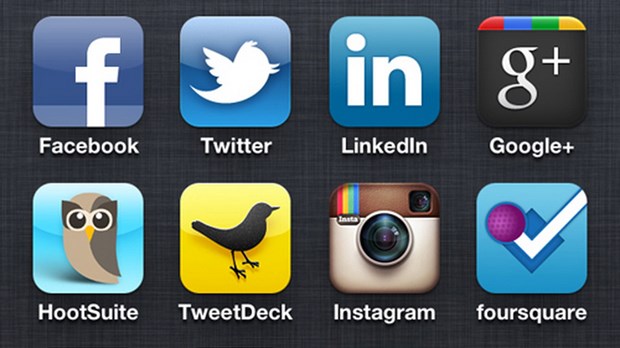Why It's Necessary to Network

When someone says “social media,” what are the first things that pop into your head? For most of us, Facebook, Twitter, or Instagram are probably one of the first networks that come to mind. In today’s highly digitized world, those are the “Big Three” that keep us connected with family, friends, and even celebrities across the country and world. But what comes to mind when you think about LinkedIn? Do you think it’s only for business people, and people looking for jobs? Isn’t it just one giant resume?
What’s the Big Deal with Networking?
It’s true that LinkedIn is primarily focused on reaching the professional world. It’s the largest professional network in the world, tipping the scales at 313 million members in more than 200 countries. Is LinkedIn targeted toward job-seekers? It can be. But it’s also an efficient and effective way to keep track of, and expand, your professional network.
I know many women, Christian women especially, who struggle with the idea of networking. Research shows that women, more than men, tend to see traditional networking activities as insincere or dirty gamesmanship. But who you know, and what you know about them, are important parts of the business world.
Really, networking isn’t a sneaky way of getting ahead—it’s an integral part of your job. If God has called you to be in the workplace, you should do that work “heartily” () and to the very best of your ability. When you expand your professional network, you also expand your potential sphere of influence for Christ. It can help you better serve your clients and better represent your company. It can also help you build personal connections, providing opportunities to support and encourage and care for the people your life touches.
At 4word, we believe every professional woman should be on LinkedIn at least once a week. Here’s why:
1. It’s a great way to “cyberstalk” your new contact.
No one likes to go into a situation unprepared. That same principle is especially true for business. When you’re meeting with someone new, whether to discuss partnerships, a job interview, or just putting a face to a new name, that first meeting will always play out more favorably if you’ve done your homework.
Using LinkedIn, you can do some preliminary digging to learn more about the person or people with whom you’re meeting. A quick browse through their LinkedIn profiles will give you an idea of where they attended school, their work histories, any skills or endorsements they have, and maybe most importantly, which connections you share. Depending on who your connections are, you might be able to gain advice or additional background on your new contact from people you know who also happen to know him or her. Call or text the friend you have in common before the meeting in order to get information on where the person likes to eat lunch, his or her communication style, business dress habits, and other tips to help make a great first impression.
In fact, if you think you already know someone, by going into “Sherlock mode” on LinkedIn, you might discover new information or connections between you and your contact that will take your business relationship to a whole new level—and by having done your homework, your contact will likely leave your meeting impressed at your dedication and knowledge.
2. LinkedIn can substitute for a professional website.
In many industries today, having a web presence is essentially mandatory. You can’t expect customers or clients to take you seriously if you don’t have a website they can use to find out more about you, your company, and what you have to offer. While there are a wide variety of options available, building and maintaining a website is definitely an expense.
If you’re not ready for your own website, you can use LinkedIn to provide an accessible web presence. This is true for both individuals and corporations.
For individuals, a basic LinkedIn profile gives you concentrated access to coworkers, colleagues, and future opportunities. Like other social networks, you can post updates, articles, and pictures or videos to share. Using the site’s search tools, you can find and connect with current coworkers and clients. You can also find other users in your industry or field with whom you’d like to network.
LinkedIn allows you to list skills you are proficient in, and your connections can endorse you regarding those skills. This is an effective way to position yourself as an industry expert, as well as opening up doors for yourself with companies who may be looking for someone with a skill set like yours.
There’s even a content publishing feature that allows users to post their own original articles. This not only helps further establish you as an industry expert, but it opens you up to even more LinkedIn users, which will help you grow your network.
3. It’s a new way to network!
Anyone in business knows how important it is to network—not simply for career and business opportunities, but to glean industry news and staying connected to the growth in one’s professional field. However, a lot of people find networking tedious and stressful and, therefore, find excuses to avoid it.
With LinkedIn, you can build your network and engage with other users working in your industry without having to attend awkward lunches or after-hours events. As you connect with other users on LinkedIn, you will find your pool of connections growing to include others in your industry or people connected to those you follow on LinkedIn.
You can choose (through the “Connections” tab) to have LinkedIn keep you informed about the LinkedIn events taking place in your contacts’ lives, enabling you to offer congratulations on recent promotions or to provide leads to someone who might be job-hunting.
Other Benefits of LinkedIn
The more information you share on your profile, the more industry-specific you will find your feed becoming. Articles and updates pertaining to either your skill set or industry will be filtered through to your feed, giving you concentrated access to news and events that you might otherwise have never seen.
If it’s time for you to start looking for a new job, LinkedIn offers tools (in the “Jobs” tab) to help you search. You can search job listings by location, company size, or industry. You can also save jobs you’re interested in, save certain job searches, and have LinkedIn alert you when new openings that meet your criteria appear. You can also look for jobs available within your network and post a job opening that you or your company needs filled.
LinkedIn is much more than an online resume—and it’s an important connection tool. If you’re smart about your approach and dedicate the time to research and see how you or your company can benefit from using it, LinkedIn just might be your key to seeing your career or company grow this year. However you use it, just remember that networking isn’t “cheating.” It’s a beneficial professional practice. Use it to widen your sphere of influence and bring glory to God in your work!
Photo courtesy Gavin Llewellyn / Flickr
Read more articles that highlight writing by Christian women at ChristianityToday.com/Women
 Read These Next
Read These Next
 Q & AMarried Roommates, a Parenting Conflict and Feeling Devalued
Q & AMarried Roommates, a Parenting Conflict and Feeling Devalued









 Homepage
Homepage
